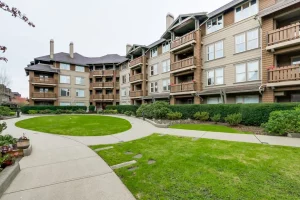For most of us, our home is the single most expensive item we will ever purchase in our lifetime. Proper care and maintenance of your investment is of utmost importance. The main benefit of owning a property in a Sectional Title Scheme is that all owners contribute to the overall upkeep and maintenance of the Scheme. When owners have outstanding body corporate levies, it affects all the other owners and, in the long term, can start to reduce the value of the property if the Scheme cannot afford proper maintenance and repairs.
Sectional Title Scheme Trustees should act without delay when dealing with non-paying owners and collect the outstanding body corporate levies as soon as possible.
Why do non-paying owners pose such a problem to Sectional Title Schemes?
- Non-paying owners put the whole Sectional Title Scheme at risk.
- The non-payment of levies results in the Scheme’s inability to pay day-to-day expenses, such as city council, cleaning, security, etc.
- Non-payment results that no maintenance can take place, and the Scheme suffers for this.
- If the financials are in a bad state, banks will not finance the properties.
- This causes property prices in the Scheme to fall and results in owners owing more on their bonds than they can get from a sale.
- It makes it difficult and, in some instances, impossible to sell units.
- Causes destruction of Scheme and ultimately owner equity.
What can I do as a Trustee?
There are two ways to look at this:
- What you can do as a Trustee prior to owners defaulting on the payment of their levies
- What you can do as a Trustee after owners’ default to reduce the impact and risk on the Scheme
Prior to an owner defaulting
Step 1: Budgeting
- Budget for non-payment
- Build in a provision for non-payment of levies.
- Budget for bad debt or make provision for write-off
- The provision is used as a cost of collection.
- Work on 5-15% levy default as an average
- Budget for legal fees
- If there is no budget for legal fees, Trustees cannot legally institute legal procedures.
- Work on 5-15% of the yearly budget as an average
Step 2: Set up a proper credit policy
What is a credit policy?
A credit policy is a set of guidelines that sets payment terms for owners and establishes a straightforward course of action for late payments.
Why a credit policy?
An effective credit policy will outline the steps or procedures used to deal with defaulting owners
What is included in the credit policy?
Information related to:
- Payments
- Interest charged
- Penalties
- Letter of demand
- Legal action
- Allocation of payments and legal costs
- Special payment arrangements
- Early settlement incentives
Step 3: Changing Management rules
Amending of a Body Corporate’s management rules
- Requires a unanimous resolution of the members of the Body Corporate
- High quorum requirement – 80% at SGM / 100% round-robin
- Submission, review & approval from CSOS
Elements that can be amended in the Management Rules:
- Recovery of legal fees vs. penalties
- Trustee disqualified to hold office if they are in arrears with their levies
- Owners being excluded from a vote if they are in arrears with their levies.
After an owner defaults
- Community Schemes Ombud Services
Dispute resolution
- May vs. Must
- Trustee resolution
- Application for dispute resolution
- Order – payment, adjustment, attachment of rental
- Costs
- Timeline
- Representation
- Internal dispute resolution
- Legal action
Trustees must understand the legal process, periods, and costs involved
Legal process:
Step A: Call owner – arrange payment or Acknowledgement of Debt
Step B: Letter of demand
Step C: Summons
Step D: Default judgment
Step E: Attachment of moveable property
Step F: Application to attach immovable property
Step G: Sale and execution
- Alternative actions
- Attachment of rental payments
Trustees can apply to the court to attach rental payments to cover the outstanding levies of an owner.
- Order to discontinue services
Get a court order to cut off electricity and reduction of water, and curtail access.
- Special payment arrangements
Arrange for the owner to sign an Acknowledgement of Debt (AOD).
- Listing of bad payers on Credit Bureau
List bad payers on Tenant Profile Network (TPN).
- Outsourced alternatives
- Stratafin Model
Outsource the risk, time, and cost of collecting the debt yourself to a company such as Stratafin.
We purchase the debt from you, which gives you instant access to cash flow and then collect the debt at our own risk and cost.
We also offer project-based fixed-term loans for Sectional Title Schemes to conduct much-needed maintenance.
- TVDM Consulting – services
Request the assistance of a specialist community schemes consultant such as TVDM Consultants to assist you with your Body Corporate’s legal aspects.
TVDM Consultants are available to provide consultations, legal opinions and letters, amendments to scheme governance documentation, meeting attendance / chairing, and professional trustee service.
Contact Stratafin for assistance with getting your Sectional Title Scheme back on its feet financially.
Contact TVDM Consultants for assistance with legal consultations, letters, amendments to scheme governance, and much more.













